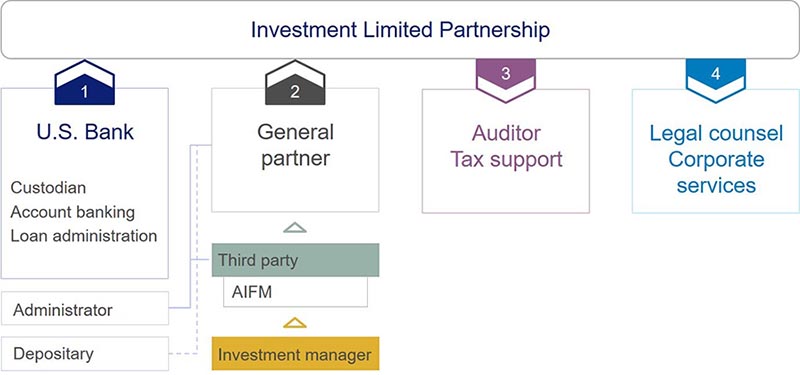
Programme debt clients want reliable service – no matter where they’re based

How does inflation affect investments?

The Investment Limited Partnership (Amendment) Bill 2020 (ILP) provides global investment managers with an alternative jurisdiction for fund structures traditionally built as partnerships in Luxembourg. If you’re interested in launching a European product and considering the benefits of Ireland as a domicile under the ILP framework, we’ve compiled some insights below to help position you for success.
ILP is a structure well suited to supporting a range of investment strategies, including investment in real assets, private credit and debt, sustainable investments and strategies with significant long-term funding requirements.
In addition to legislative changes mentioned in the overview, the Central Bank of Ireland (CBI) has also updated its alternative investment fund (AIF) rulebook to support closed-ended AIF structures. Updates for closed-end qualifying investor alternative investment funds (QIAIFs) include the following:
Over the past two years, the Irish fund industry grew by more than 40 percent – with 119 firms entering or expanding in the market during the Brexit transition. Experts anticipate this growth trend will continue given the wide-reaching appeal of ILPs.
“ILPs are expected to draw broad global interest due to Ireland’s importance as an English-speaking gateway to Europe and as the EU’s only common law country post Brexit,” says Breda Sullivan, U.S. Bank head of Depositary Services Europe. “Already, fund promoters and managers from the U.S., U.K., Europe and elsewhere are interested in this new structure and proving predictions correct.”
According to Invest Europe, annual fundraising in the European private equity space averaged more than 100 billion euros per year over the last three years. Ireland is expected to grow a significant market share of up to 20 billion euros per annum over the coming years based on its strong position in the wider funds market.
In the past, Luxembourg was the European jurisdiction of choice for managers looking to benefit from the AIFMD pan-EEA marketing passport. It was the only jurisdiction offering equivalent limited partnership (LP) structures preferred by closed-end funds investing in private assets. U.S. Bank is providing services to managers in the private funds space in Luxembourg. Now, managers have another comparable option in Ireland.
“U.S. Bank has a successful and proven track record working with regulated alternative funds structured as partnerships in other domiciles, and we welcome the opportunity to extend our offering to ILPs in Ireland,” says Ken Somerville, head of U.S. Bank Global Fund Services Ireland. “Established, comprehensive and integrated solutions are leveraged to streamline the client ILP experience as we outline in greater detail below.”
Launching an ILP involves the selection of a variety of inter-connected stakeholders. At minimum, an ILP requires the appointment and participation of the following parties:

With so many parties involved, coordinating efforts can become difficult. To streamline the process, look for a provider with a holistic solution – a one-stop-shop. A multi-functional provider can deliver operational efficiencies, opportunities for cost reduction and a more integrated onboarding experience. While the core functional support should be a priority, keep an eye toward additional support services that may add benefits above and beyond, such as an experienced corporate trust team positioned to support global managers. In addition, a locally based provider, such as U.S. Bank, can assist you by making introductions to a range of legal, audit and management companies that specialize in supporting the ILP structure.
“If your depositary and custody bank partner can accommodate additional responsibilities within a collaborative-team ILP solution, then bundling services from the same provider presents a more efficient alternative to engaging multiple disconnected firms,” says Sullivan.
U.S. Bank now offers clients ILP services in addition to supporting a broad range of other fund structures, domiciles and strategy types including AIFs, UCITS, ICAVs and unit trust frameworks. As new opportunities arise to add to your fund suite, position yourself for success with a team that offers end-to-end solutions and service expertise in custody, depositary, fund accounting, transfer agency and more.
U.S. Bank is delighted to be offering ILP services to one of the first authorised partnerships under the new legislative and regulatory regime introduced by the Investment Limited Partnership (Amendment) Act 2020, which came into force in February 2021.
For additional in-depth information regarding ILPs, watch this video. To learn more about our fund services offerings, visit our website or connect with our team.


